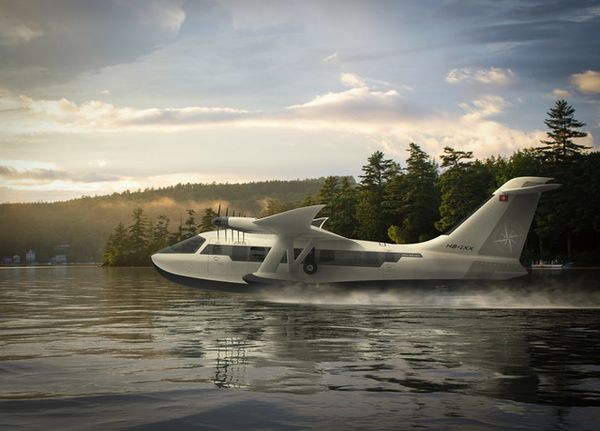Airbus has announced that it will set up a second Final Assembly Line in China. This new facility will help the company reach its goal of 75 aircraft per month by 2026.

During a French State visit to China, Airbus signed new cooperation agreements with its China Aviation partners. Witnessed by Chinese President Xi Jinping and French President Emmanuel Macron, Airbus CEO Guillaume Faury signed the Tianjin Free Trade Zone Investment Company Ltd., an agreement to expand the A320 Family final assembly capacity with a second line at its Tianjin site.
This agreement will contribute to Airbus' overall objective of 75 aircraft per month in 2026 throughout its global production network. Airbus also signed a General Terms Agreement with China Aviation Supplies Holding Company to sell 160 Airbus commercial aircraft. The agreement also covers previously announced orders worth $17 billion.
Unfortunately for Airbus, it appears that it will not get any additional orders. However, China represents 20% of the worldwide aircraft market and its air traffic is predicted to grow by 5.3% over the next 20 years, significantly faster than the world average of 3.6%. This growth should lead to a tremendous number of required aircraft, hopefully bolstering Airbus' sales for a few years.

What is a Final Assembly Line?
A Final Assembly Line (FAL) is usually created to join multiple components of an airplane, integrate systems, and test the completed aircraft. The Tianjin Final Assembly Line, also known as FAL Asia, began operations in 2008 and since has created more than 600 Airbus A320 family aircraft. By retrofitting the FAL, Airbus was also able to begin manufacturing the larger variant of the A320 family, the A321neo. Therefore, the purpose of the second FAL should be able to output more A321neos.

Tianjin is not the only location to have more than one assembly line either. Airbus currently has 4 A320 family assembly sites worldwide, including the Tianjin location. Its Hamburg, Germany location actually has 4 assembly lines. With the help of all these locations, Airbus has certainly gotten much closer to achieving its goal
The Second Part: Sustainability
A new FAL was not the only thing that came out of this new agreement. Airbus and the China National Aviation Fuel Group (CNAF) signed a Memorandum of Understanding to further cooperation for Sustainable Aviation Fuels (SAFs). This means that Airbus and China will work together to try and create cleaner, carbon-free air travel.

In September 2022, Airbus and CNAF had already contracted to support commercial and delivery flights in China to use SAF. As of the end of last month, 17 delivery flights and 1 commercial flight had been facilitated by the two. The purpose of this new cooperation agreement aims to diversify sources of SAF enhance SAF production and use 10% SAF by 2030.
The Runway is Obsolete: Jekta Swiss is Resurrecting the Flying Boat for the 21st Century » EASA Mandates Airbus A320 Fuselage Inspections » Southwest and Turkish Airlines Unveil 2026 Partnership »
Comments (0)
Add Your Comment
SHARE
TAGS
NEWS Airbus China FAL Sustainable Aviation Fuel SAF SustainabilityRECENTLY PUBLISHED
 End of an Era: JetBlue's Farewell to the Embraer E190
On September 9, 2025, after nearly two decades of service, JetBlue Airways brought an end to an era with the retirement of its Embraer E190 fleet.
INFORMATIONAL
READ MORE »
End of an Era: JetBlue's Farewell to the Embraer E190
On September 9, 2025, after nearly two decades of service, JetBlue Airways brought an end to an era with the retirement of its Embraer E190 fleet.
INFORMATIONAL
READ MORE »
 Cities in the Sky: The Future Built on eVTOL Flight
Imagine stepping out of your office, walking to a nearby rooftop, and moments later lifting off vertically into the sky — no airport lines, no traffic, just a silent hop across the city. This future is no longer science fiction; it's the foundation of what could be aviation's biggest innovation since the jet age.
INFORMATIONAL
READ MORE »
Cities in the Sky: The Future Built on eVTOL Flight
Imagine stepping out of your office, walking to a nearby rooftop, and moments later lifting off vertically into the sky — no airport lines, no traffic, just a silent hop across the city. This future is no longer science fiction; it's the foundation of what could be aviation's biggest innovation since the jet age.
INFORMATIONAL
READ MORE »
 The Runway is Obsolete: Jekta Swiss is Resurrecting the Flying Boat for the 21st Century
AeroXplorer sat down with George Alafinov, CEO & Co-founder of Jekta Swiss. In conversation, he discussed the company's unique value proposition and how he sees his aircraft revolutionizing the amphibious aircraft industry.
STORIES
READ MORE »
The Runway is Obsolete: Jekta Swiss is Resurrecting the Flying Boat for the 21st Century
AeroXplorer sat down with George Alafinov, CEO & Co-founder of Jekta Swiss. In conversation, he discussed the company's unique value proposition and how he sees his aircraft revolutionizing the amphibious aircraft industry.
STORIES
READ MORE »



